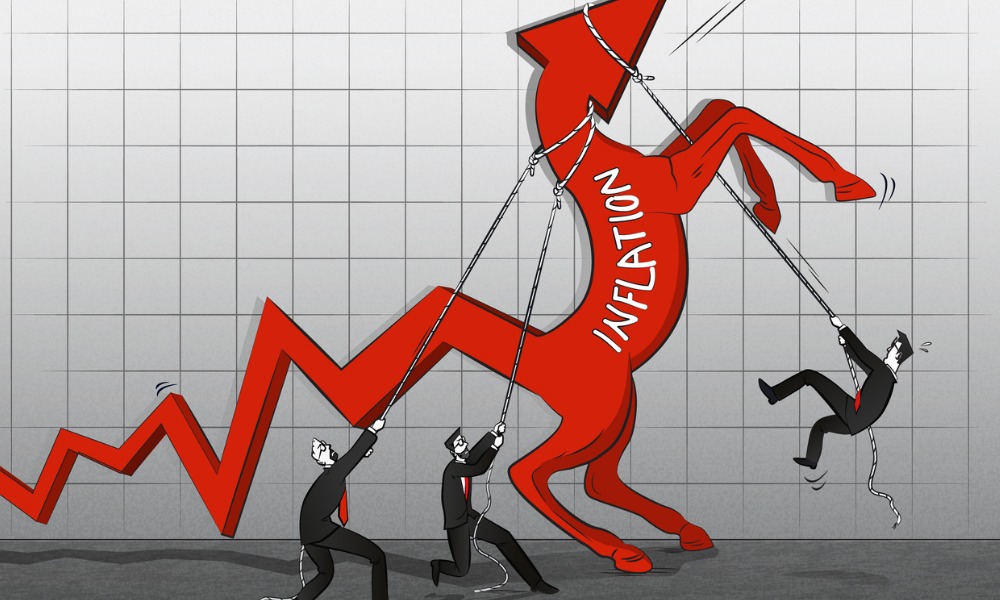Does this reduce the likelihood of a second base rate cut next month?

Annual inflation in the UK increased to 2.2% in July 2024, up from 2% in June, according to data released by the Office for National Statistics (ONS) on Wednesday.
The Consumer Price Index (CPI) fell by 0.2% on a monthly basis in July, compared with a decline of 0.4% during the same month last year.
The ONS reported that the largest upward pressure on the annual inflation rate came from housing and household services, where gas and electricity prices dropped by less than they did in 2023. In contrast, the biggest downward contribution was from the restaurant and hotel sector, where hotel prices fell this year after rising in the previous year.
“Inflation ticked up a little in July as although domestic energy costs fell, they fell by less than a year ago,” said Grant Fitzner, ONS chief economist. “This was partially offset by hotel costs, which fell in July after strong growth in June.
“The increase in cost of goods leaving factories slowed a little in the year to July, led by falling petrol prices. Meanwhile, raw materials prices picked up for the first time in over a year, driven by smaller falls in gas and electricity costs.”
CPI rose by 2.2% in the 12 months to July 2024, up from 2.0% in June 2024, mainly driven by prices of gas and electricity falling by less than a year ago.
— Office for National Statistics (ONS) (@ONS) August 14, 2024
Read the release ➡️ https://t.co/yVx4Eus6TJ pic.twitter.com/X3P2QsS4Kv
“Britons may have thought they’d seen the last of rising inflation for a while, but it has reared its head again,” commented Andy Mielczarek, chief executive of Chetwood Financial. “Hiking interest rates has succeeded in bringing us back to the target rate, but experts have been predicting some hiccups on the road to recovery.
“Today’s news is not necessarily a sign that we are on the wrong path, or that there is cause to panic. Recent wage increases are hopefully helping to soften the blow of higher prices, and the promise of more base rate cuts in the near future should be a source of optimism for mortgage holders.”
Ben Thompson, deputy chief executive at Mortgage Advice Bureau, said the slight uptick in inflation in July “should not dampen spirits too much, and to some degree was expected.”
“It’s been a good August for those with mortgages and, indeed, first-time buyers,” Thompson added. “However, it’s important to note that inflation holding steady (or indeed falling back down to 2%) in the next few months will be vital to encourage more interest rate cuts from the Bank of England. That path, however, is also currently expected too.
“For now, lenders would have already factored in the last rate reduction and will be basing current fixed rates on future interest rate expectations, so we wouldn’t expect this to have a big impact on the rates currently being offered.”
Richard Pike, chief of sales and marketing at Phoebus, said the first rise in inflation in 2024 might shatter hopes for a second cut in the bank rate next month.
“In their August Monetary Policy Report, the Bank of England did predict a slight uplift in inflation, and advised a cautious approach to further rate cuts,” he said. “It was already a close 5–4 vote by committee members in August so, with rising inflation, it will be a surprise if they don’t stick at 5% come September.
“It’s a real balancing act. On the one hand, you have economists warning of increasing inflationary pressures in the coming months. On the other hand, unemployment is expected to rise, which would put more pressure on the economy when it’s just starting to recover from the 2023 recession.
“It will be interesting to see what tomorrow’s monthly GDP figures look like from the Office for National Statistics. They will also influence the bank’s September decision on whether or not to drop the bank rate.”
Any thoughts on the latest UK inflation figures? Let us know by leaving a comment in the discussion box at the bottom of the page.



